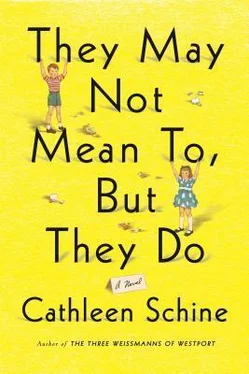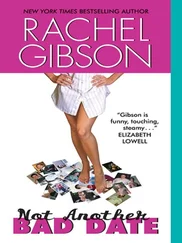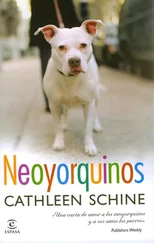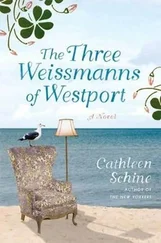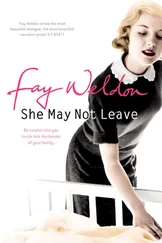“It made me feel so old,” she said.
But she and Freddie both knew that until their parents died, they would still be the children.
Joy discovered that she rather liked Manhattan in August. She could see the lightning and hear the thunder and not worry that her power would go out. She could watch the raindrops stain the pavement from six stories above and not wonder if the basement would flood. The early mornings were bearable, and she took Gatto in her bag in one hand, the other bags hooked on Aaron’s walker, just to be safe, you never knew, and made her way to Aaron’s park to mourn him and, now and then, to silently rail at him as the pigeons cooed and the sparrows chirped. No other people were there, in the park, or on the streets. The city was as quiet as a small town.
The invitations to the bat mitzvah had been sent out last month, but Danny made sure to tell her that one had now been sent to Karl, too. “My response was a little out of proportion” was his way of apologizing. Joy said, “We all mourn in our own ways, Danny. Some of us regress, that’s all.”
Karl had called her from his son’s house. They did not stay on the phone. Men so rarely did. He asked her if she had thought any more about what they talked about. She said she had, and that was true. She had thought about it a great deal. And the more she thought about living with Karl, the more she enjoyed living with Ben. Ben was never there. He went to work during the day and to class in the evening. At night, he was out until the wee hours. Joy saw traces of him, reassuring traces. A mug in the sink. An empty carton of milk put back in the refrigerator.
So when he arrived at the apartment unexpectedly early one afternoon, Joy was surprised but delighted.
“Did you get the afternoon off? We can go out to the early-bird special!”
“My life is ruined,” he said, flinging himself onto the couch. He thrashed around a bit, then said, “They want a urine sample.”
“For DNA? But they saw you, Ben. The police know it was you. What a waste of city resources.”
“No, Grandma, not the city. The law firm. They want a urine sample.”
“You and your urine, Ben. Really.”
“I have to give it to them today, and you know, I was out last night and so there might be, you know, traces. Of stuff. They’ll fire me and I’ll never get into law school.”
“Stuff? Like drugs? You take drugs? Bennie, Bennie…”
“Just weed, Grandma. But it’s against their policy and…” He took an empty plastic specimen jar from his pocket and looked at it sorrowfully. “I’ll have to be a bartender forever.”
“Oh, for heaven’s sake,” his grandmother said. “Give me that.”
She went in the bathroom and filled it up.
“Here, take this.” She was really angry. “Marijuana! As if it’s any business of theirs.”
In the baking, desiccated air of September, Duncan sat up. He demanded to see all his children just once more before he died.
“Die? You just woke up. Slow down, Dad.” Freddie was so happy she felt almost sick. She had not expected to hear her father’s deep, smooth voice ever again.
The doctors were stunned. He’s a tough nut, they kept saying. A tough nut.
“Do this for me so I can die in peace.”
Freddie had already called her sisters, still encamped in Duncan’s room at Green Garden, and they were on their way.
“They’re coming, Dad. Laurel and Pamela are coming from Green Garden.”
“The traffic,” he muttered, looking at the clock on the wall. “I could be gone before they get here.”
As for her brothers, the best Freddie could do was FaceTime them.
Duncan sat up in his hospital bed when they all assembled. He stretched out one pallid skinny arm, tubes dangling from it.
“‘Howl, howl, howl, howl! O! you are men of stones.’”
Someone, one of the brothers on FaceTime, muttered, “This really cannot be happening.”
“‘Had I your tongues and eyes,’” Duncan continued, his voice low now, “‘I’d use them so that heaven’s vaults should crack.’”
“It’s his last performance,” Pamela whispered. Laurel nodded, eyes wide.
“‘A plague upon you, murderers, traitors all!’” Duncan roared.
It was a disjointed piece of theater, he spoke only Lear’s lines, but it was moving nonetheless. Freddie was tempted to fill in the missing dialogue, but stopped herself. She saw that this was her father’s show, and a show it was, Duncan’s voice rising and falling with emotion, his arms flung out, then pulled back to his heaving chest.
“‘No, no, no life!’” he cried, turning first to Pamela, then Laurel, to each son’s face, one on Freddie’s phone screen, one on Molly’s. At last he turned to Freddie herself. “‘Why should a dog, a horse, a rat, have life, and thou no breath at all?’”
“I’m breathing, Daddy,” she reassured him softly.
But suddenly, it appeared, Daddy was not breathing. He dropped back on his pillows, his mouth agape, his arms hanging from either side of the bed.
There was a hush.
Then Lear opened an eye.
Lauren gasped. “He’s not dead.”
“Rotten trick, Dad,” said Gordon’s FaceTime voice. “You scared the living daylights out of us.”
Duncan, though pale, trembling, and clearly exhausted, smiled through the fatigue, sat up, and bowed from the waist, first to the left side of the room, then the right, then straight ahead.
Freddie began to clap. What else was there to do? It had been a brilliant performance.
The great day arrived. Ruby sat nervously waiting to be called to read her Torah portion. It was a portion full of curses cast on the people, but she could not really blame God — the Israelites were always straying. She had recently seen an old black-and-white movie in which Lassie, actually Lassie’s son Bill, a perfect and brilliant collie sheepdog belonging to a young Elizabeth Taylor, accidentally goes off to World War II and comes home with Post Traumatic Stress Disorder, growling at and biting anyone who comes near him, raiding chicken coops, until at last he is reunited with Elizabeth Taylor and regains his calm and loving nature. Ruby had, in the last few days of frantically practicing her Haftorah, begun to confuse the behavior of God and of Bill, both of them essentially good, both of them driven to violence by the misbehavior of human beings. She sensed this must be sacrilegious, the comparison of a dog, however regal, and the god of the Israelites, but the thought was hard to get out of her head once it had planted itself there.
Her sister had wanted to wear a matching dress. Ruby had not had to throw a fit, though she was prepared to do so. Their mother had pointed Cora to a frilly dress she knew Ruby would never have worn, and Cora had fallen for the bait. Ruby was content in a dress her grandmother called elegant. Her mother had been willing to spend quite a bit of money on it, she was so relieved it was not a bejeweled ice-skating costume. “Sophisticated” was the word Ruby used to describe it, and herself, to herself.
She looked down at her grandmother, in the first row, who was rather violently slapping her legs together, then moving them apart, then slapping them together again, staring meaningfully at Ruby. Maybe Grandma Joy had to go to the bathroom. But it was very distracting.
“Why won’t Ruby put her legs together?” Joy whispered to Danny. She slapped her own closed again, instructively. “She looks like Sharon Stone, for heaven’s sake.”
Ruby could not remember much of the actual ceremony. She was aware of the rabbi, her wonderful rabbi, right beside her, a strong and comforting presence. The cantor was wearing perfume, which made Ruby sneeze once. She had no love for the cantor, a cold, shrill taskmaster in soft feminine sheep’s clothing. The Hebrew letters of the sacred yellowed scroll came in and out of focus, but the words were there, in her head, in her soul, she realized, and she chanted a little louder, her voice firm and high and only occasionally off pitch.
Читать дальше
